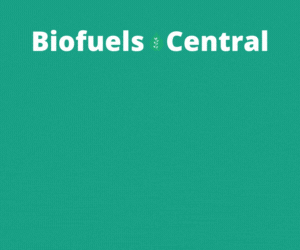SwRi engineers help develop cleaner-burning diesel fuels.
Southwest Research Institute (SwRI) is helping a client develop a simple post-refinery treatment process that reduces exhaust emissions from diesel engines by overcoming the soot/nitrogen oxides (NOx) reduction trade-off that has plagued engine researchers for decades. The result is a modified fuel that potentially could replace today’s ultra-low sulfur diesel, biodiesel and other renewable diesel fuels.
The modified fuel reduces soot production without increasing NOx and without requiring engine design or calibration changes.
Although engine manufacturers routinely develop cleaner engines for new vehicles, older model vehicles continue to contribute heavily to pollution levels. This new modified fuel could potentially lower exhaust NOx and particulates for both older and newer model diesel engine vehicles.
🔥 What about we co-host a webinar? Let's educate, captivate, and convert the biofuels economy!
Biofuels Central is the global go-to online magazine for the biofuel market, we can help you host impactful webinars that become a global reference on your topic and are an evergreen source of leads. Click here to request more details
James Wood, project manager, a principal scientist in SwRI’s Chemistry and Chemical Engineering Division.
While fossil fuels eventually may be replaced by electric powertrains or noncarbon fuels in our lifetime, the process developed with our client could be implemented immediately.
SwRI designed, built and operated a bench-scale processing plant to produce modified fuel samples for laboratory testing. This internationally patented breakthrough technology introduces a unique low concentration chemical treatment that is combined with a specialized mechanical mixing system that produces a treated diesel fuel that is stable for long periods of time.
This establishes a blend-in process that easily modifies the fuel. The specimens demonstrated conformance to ASTM physical, mechanical, rheological, thermal and chemical fuel requirements.
SwRI’s Powertrain Engineering Division evaluated the fuels during steady-state and transient engine emissions testing according to Environmental Protection Agency test procedures.
Dr. Imad Khalek, a senior program manager who operates SwRI’s particulate laboratory.
The modified fuel resulted in a substantial reduction in soot mass emissions compared to the baseline ultra-low sulfur diesel.
Based on the bench-scale plant, SwRI helped design a production-scale facility that meets ASTM International and ANSI (American National Standards Institute) standards and is capable of processing 12,000 barrels per day (150 million gallons per year).
SwRI Engineers Help Develop Cleaner-Burning Diesel Fuels, San Antonio, October 5, 2021








